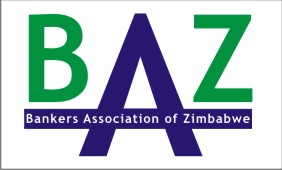Innocent Sibonginkosi Ncube
HARARE – Zimbabwe’s bankers on Tuesday warned the central bank about the potential impact of future shocks to the local currency, urging caution to avoid undermining people’s incomes and eroding public confidence following a 43% devaluation last week.
“Every time you have such big shocks there are people who will lose out. The proper thing is to avoid significant huge shocks and maybe have small movement in the rate going forward,” Bankers Association of Zimbabwe (BAZ) president Lawrence Nyazema told Reuters.
The ZiG, which stands for Zimbabwe Gold, represents the southern African country’s sixth attempt at establishing a stable currency in 15 years, following a period of hyperinflation under former longtime leader Robert Mugabe. However, authorities have faced challenges in persuading a skeptical population to cease transactions in foreign currencies.
The ZiG’s recent devaluation comes after losing over 47% on the black market in the five months since its launch, leading some economists to suggest that its demise may be imminent.
Nyazema emphasized that it is premature to declare the new currency’s end, referring to last week’s actions by the central bank as a necessary “reset” for the economy.
“I don’t think we are seeing the death of the currency, but we have our work cut out for us. We have to do more work in terms of convincing the citizens that the money is stable. We needed to reset, and now that we have reset we need to stick to our promises,” Nyazema stated.
He further noted,
“It is up to the monetary authorities to come up with the right set of measures to bring stability and make sure that such significant movements are not frequent.”
Since the devaluation, the ZiG has continued to decline, slipping from 24.3902 on Friday to 25.1305 on Tuesday.
Bankers also cautioned against hastily removing the U.S. dollar from circulation before a 2030 deadline, arguing that such a move would send the wrong signals to investors.
“If we were to wake up tomorrow morning and say we are back to mono currency there is likely going to be confusion not only internally but the rest of the world, whom we have told we will have a multi-currency up to 2030,” Nyazema explained.
Prior to the ZiG’s significant decline, the government had aimed to establish the gold-backed currency as the sole currency unit by 2026.
Zim GBC News©2024


